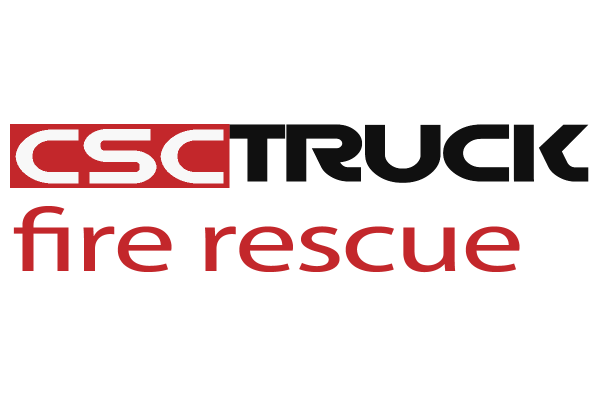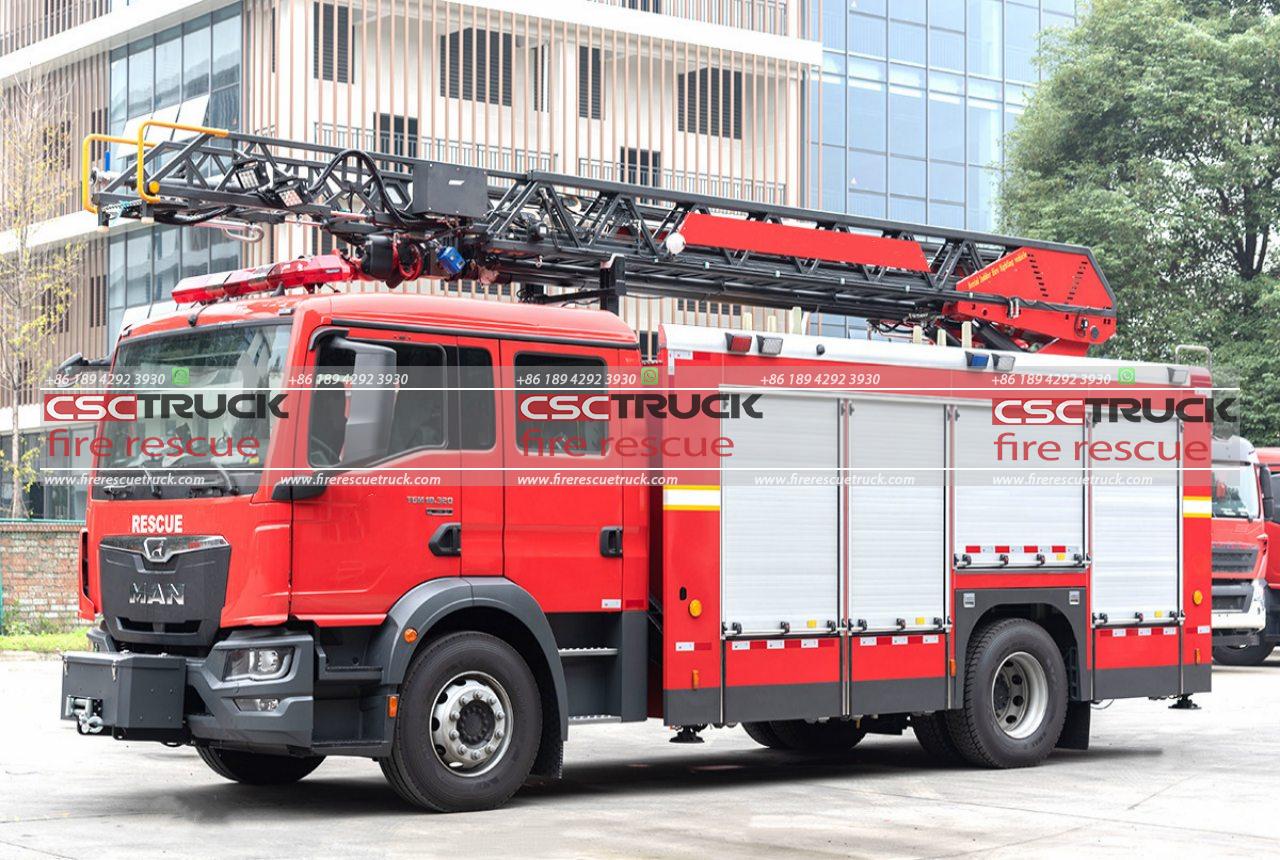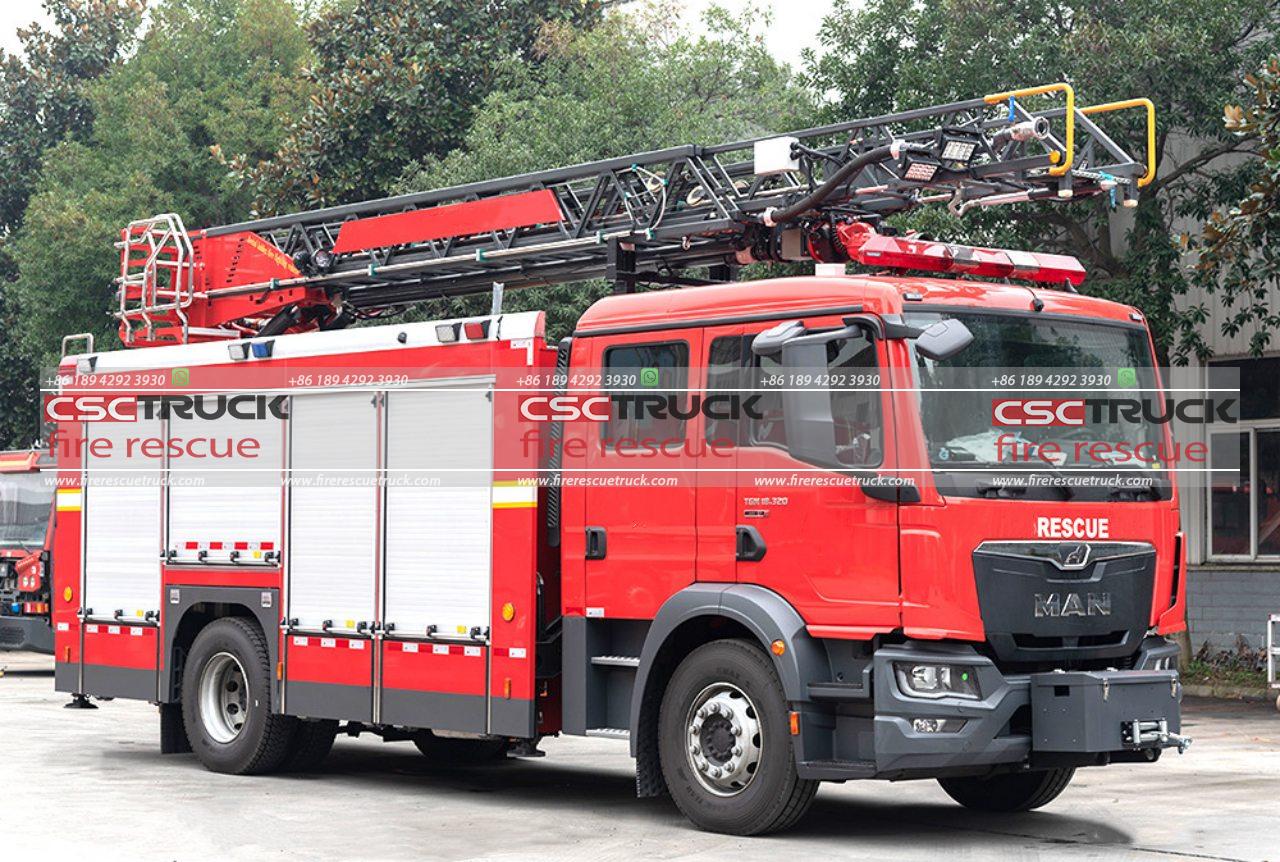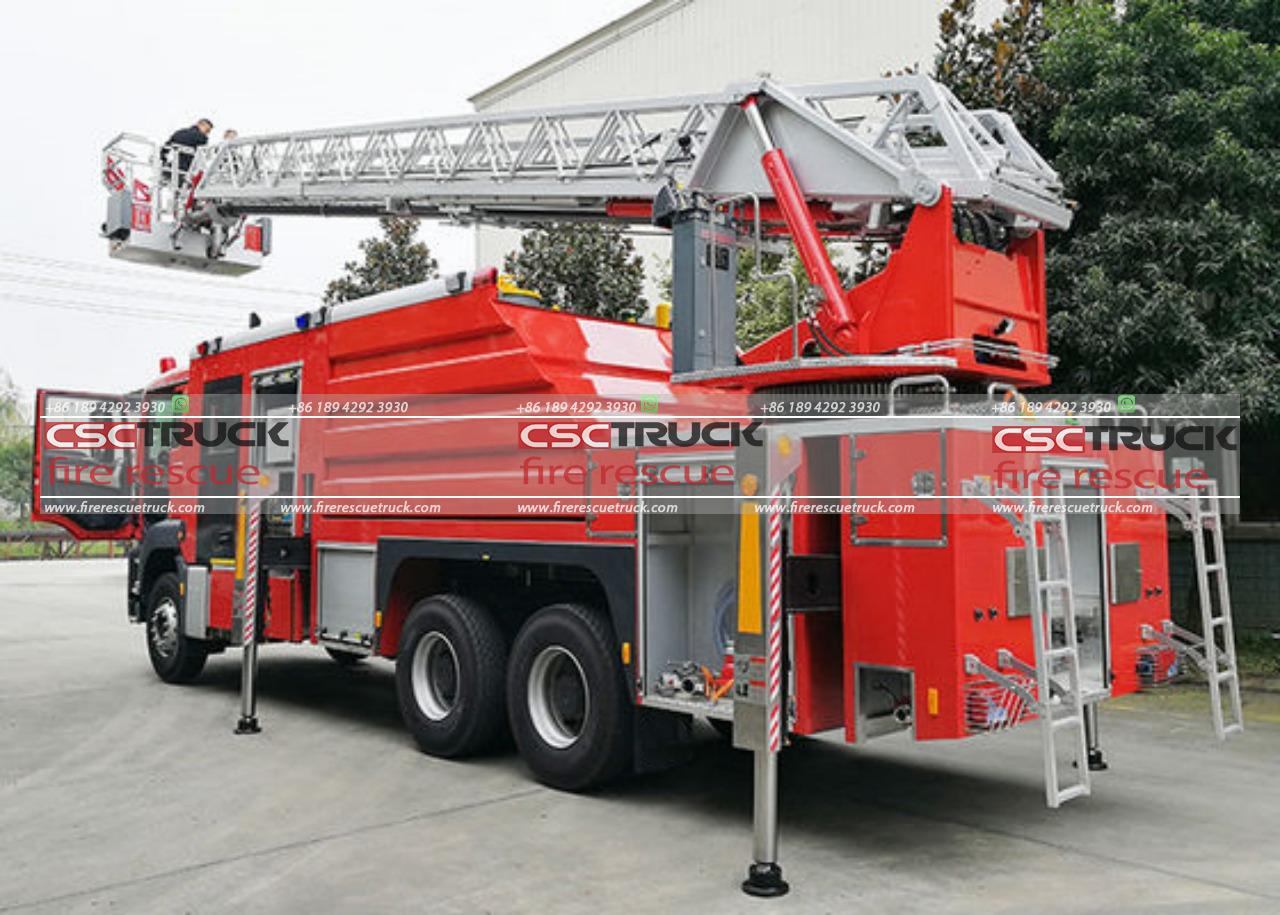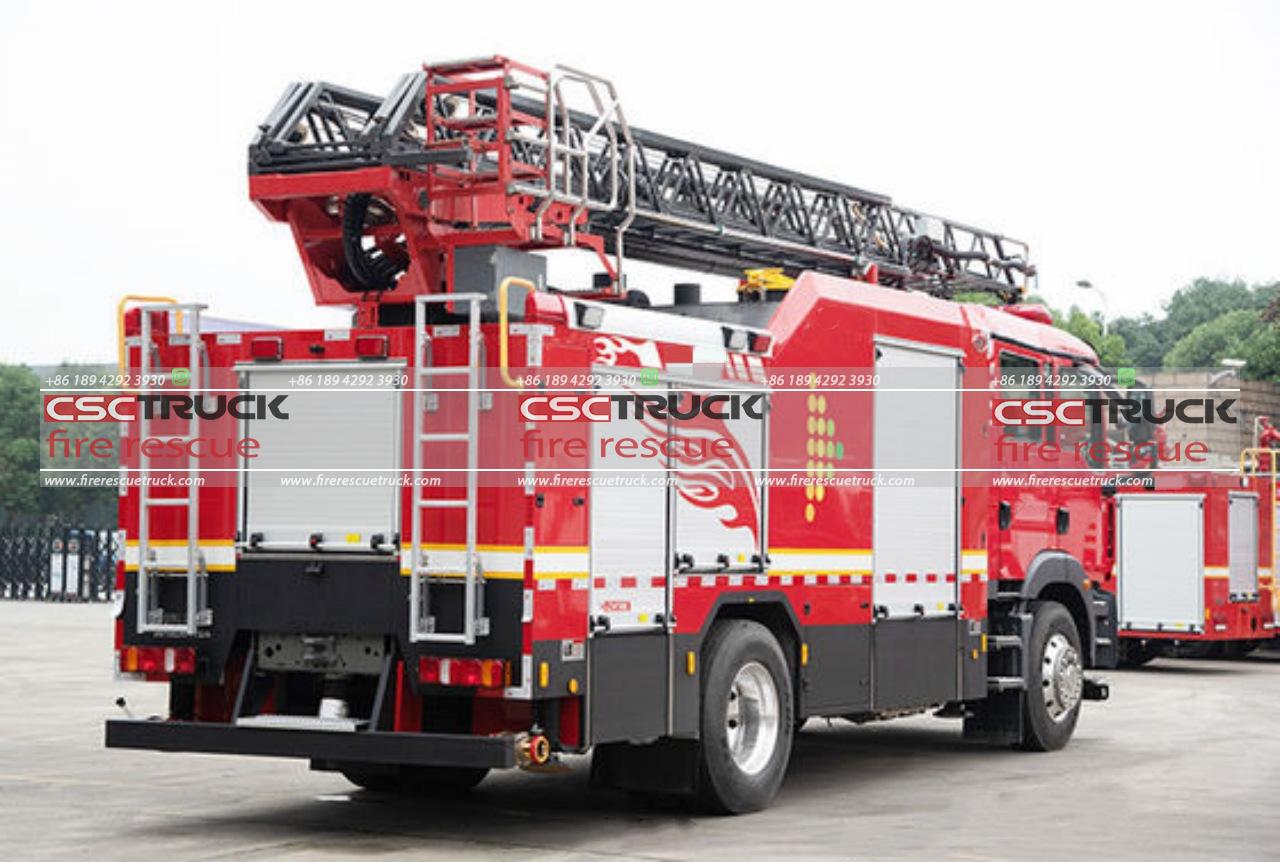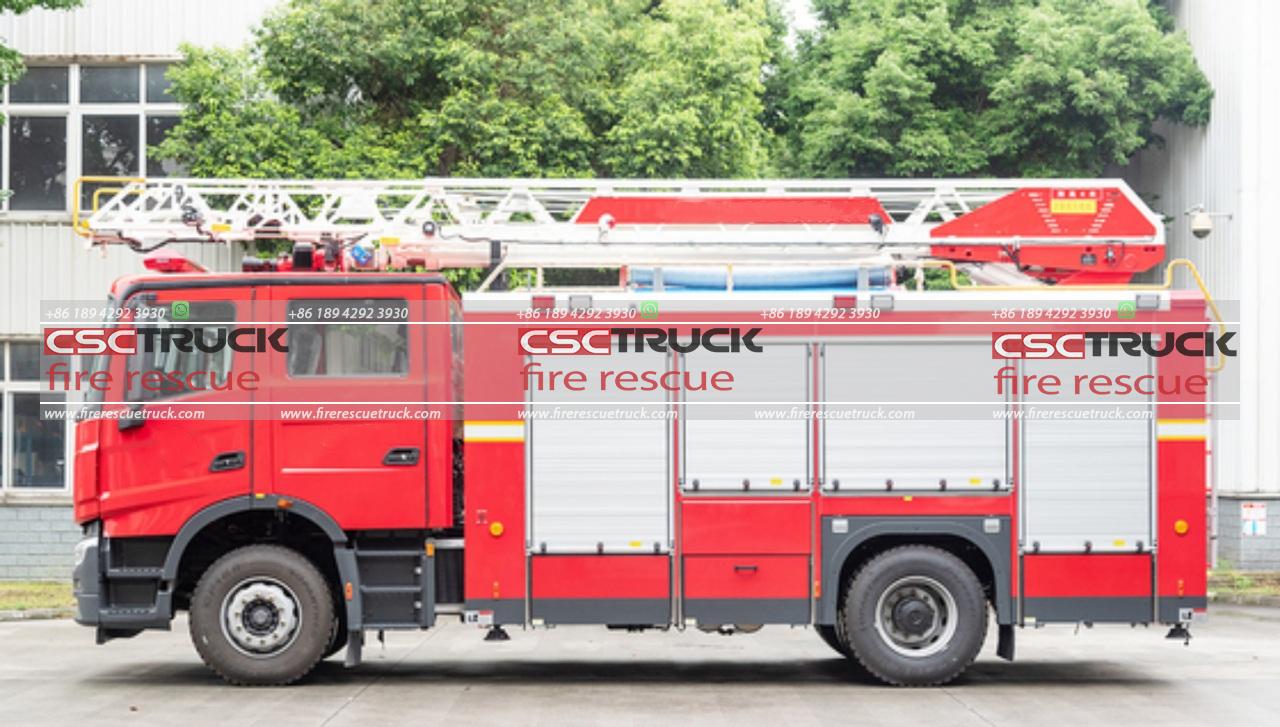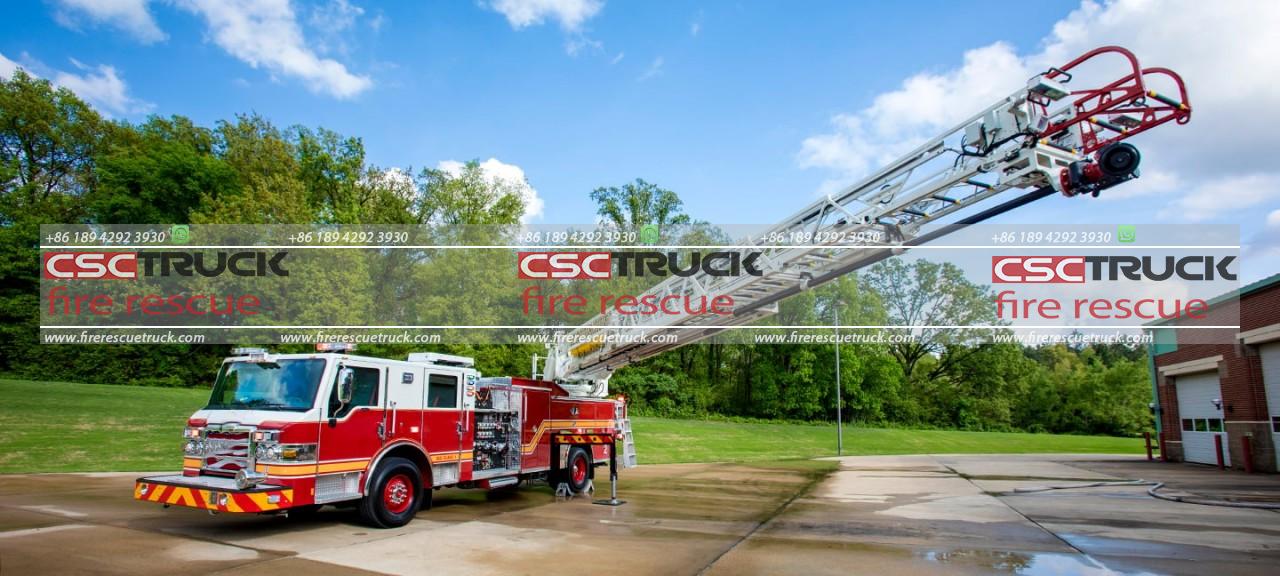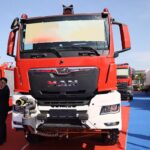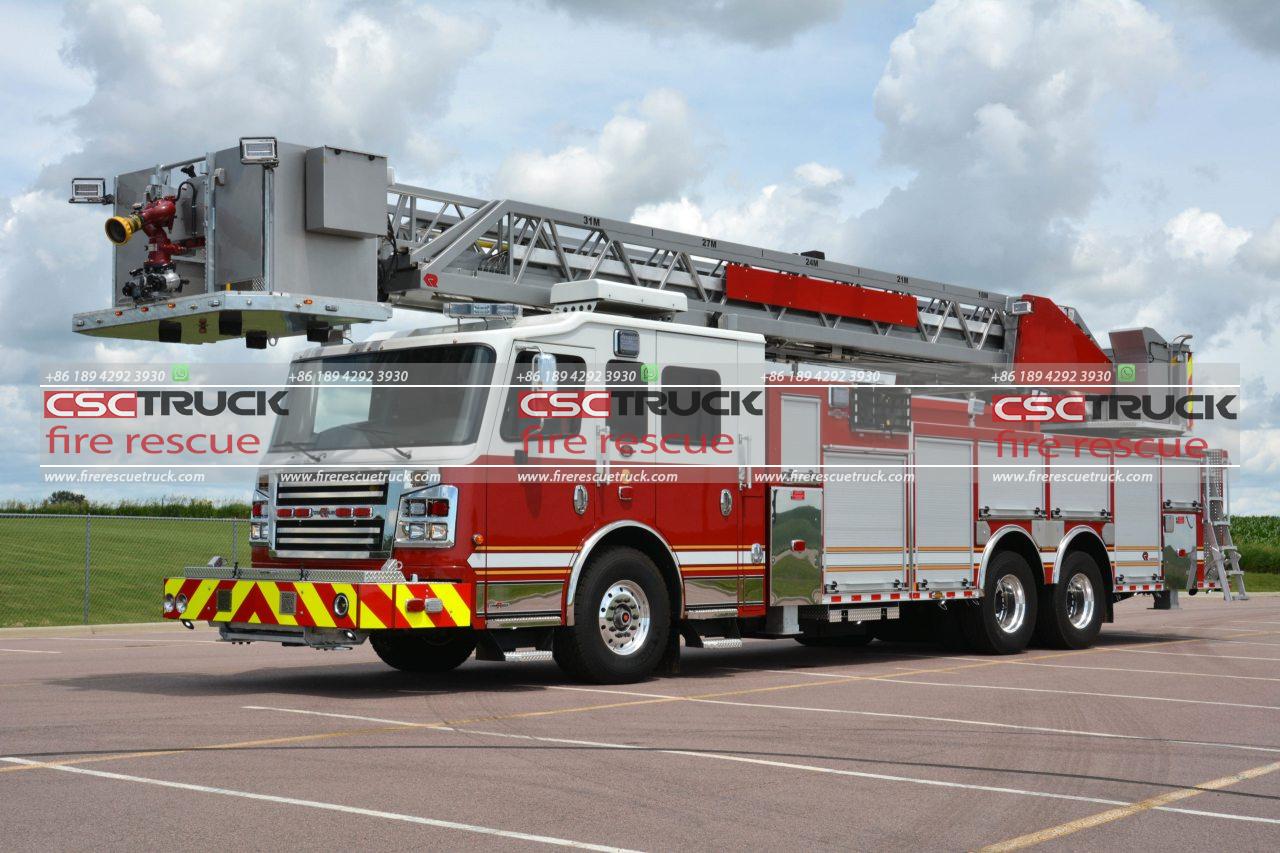What is the Purpose of the Aerial Ladder Fire Truck?
The aerial ladder fire truck, often regarded as one of the most iconic vehicles in firefighting, serves a vital purpose in modern emergency response. This specialized fire apparatus, equipped with an extendable ladder, is designed to provide access, rescue capabilities, and a platform for firefighting in challenging and elevated situations. Its multifaceted role has made it an indispensable tool for fire departments worldwide. This article explores the purpose, design, and operational significance of the aerial ladder fire truck, shedding light on why it is crucial in urban and rural fire service.
Understanding the Aerial Ladder Fire Truck
An aerial ladder fire truck, commonly referred to as a “ladder truck,” is a vehicle equipped with a telescoping ladder that extends upward and outward. Unlike standard fire engines that primarily carry water and hoses, ladder trucks are specialized for situations that require vertical and horizontal reach. Their design prioritizes access and versatility, enabling firefighters to perform tasks that standard ground equipment cannot achieve.
Key Features of an Aerial Ladder Fire Truck
- Telescoping Ladder: The hallmark feature of an aerial ladder fire truck is its extendable ladder. These ladders can range in length, typically reaching heights between 65 to 135 feet (20 to 41 meters). The ladder is mounted on a rotating turntable, allowing it to pivot 360 degrees, which enhances its operational flexibility.
- Stabilizers (Outriggers): To ensure stability when the ladder is deployed, the truck is equipped with outriggers. These extendable supports anchor the vehicle to the ground, preventing it from tipping over during operations.
- Elevated Water Stream Capability: Many aerial ladders are equipped with water nozzles at the tip, enabling firefighters to direct high-pressure streams of water or foam to the upper floors of buildings or other hard-to-reach areas.
- Rescue Equipment: In addition to the ladder, these trucks often carry tools such as basket stretchers, harnesses, and other gear used for high-angle rescues.
- Specialized Compartments: Ladder trucks house an array of equipment, including saws, axes, ventilation fans, and lighting systems, making them versatile for various emergency scenarios.
Primary Purposes of the Aerial Ladder Fire Truck
The aerial ladder fire truck is designed to fulfill specific roles during firefighting and rescue operations. Below are its primary purposes:
1. Accessing Elevated Locations
The most obvious function of an aerial ladder is to provide access to the upper floors of buildings, rooftops, or other elevated structures. In urban areas with high-rise buildings, this capability is crucial. Firefighters use the ladder to evacuate trapped individuals, transport equipment to higher levels, or gain vantage points for situational assessment.
2. Facilitating Rescues
Aerial ladders play a critical role in life-saving operations. During a fire or other emergencies, occupants may become trapped in upper stories. The aerial ladder allows firefighters to safely reach and evacuate individuals who cannot use traditional escape routes, such as stairs or fire escapes. The ladder may also be used to reach injured construction workers, stranded climbers, or individuals trapped on ledges.
3. Providing an Elevated Firefighting Platform
Fighting fires in tall buildings often requires an elevated angle to deliver water effectively. The ladder’s mounted nozzle can be used to spray water or foam from above, allowing firefighters to tackle flames on upper floors or prevent fire from spreading vertically. This capability is particularly useful for combating blazes in high-rises, warehouses, or industrial facilities.
4. Aiding Ventilation
During structure fires, smoke and heat need to be vented to improve visibility and reduce the risk of flashovers. Firefighters can use the aerial ladder to access rooftops and break through windows or skylights, aiding ventilation efforts.
5. Assisting in Urban Search and Rescue (USAR) Operations
Beyond firefighting, aerial ladder trucks are instrumental in USAR missions. They can be used to rescue individuals from collapsed structures, bridge overpasses, or confined spaces at height. The ladder provides a stable and extendable platform for such operations.
6. Lighting and Observation
In addition to its core firefighting and rescue roles, the aerial ladder truck often serves as a platform for observation and lighting during large-scale emergencies or nighttime operations. Elevated lights mounted on the ladder can illuminate scenes, improving visibility for crews on the ground.
Applications Across Different Environments
The aerial ladder fire truck is a versatile asset, adaptable to various environments and scenarios:
Urban Settings
In cities, aerial ladder trucks are essential for addressing challenges posed by high-rise buildings, dense construction, and traffic congestion. Their ability to navigate tight spaces and reach elevated points ensures effective responses in urban environments.
Rural Areas
Although often associated with urban settings, aerial ladder trucks are equally valuable in rural firefighting. They provide access to silos, large barns, and industrial facilities. Additionally, their capacity for elevated water delivery can be a game-changer in combating wildfires or large-scale agricultural fires.
Industrial Complexes
Factories, warehouses, and chemical plants often have tall structures or storage units that can be difficult to access. Aerial ladder trucks enable firefighters to reach these areas quickly and suppress fires before they escalate.
Design and Technological Advancements
Modern aerial ladder fire trucks are equipped with state-of-the-art technology to enhance their effectiveness:
- Advanced Controls: Sophisticated hydraulic systems and electronic controls allow for precise movement of the ladder, even in challenging conditions.
- Thermal Imaging Cameras: Many trucks are equipped with cameras that help locate hot spots, detect trapped individuals, or assess structural integrity from a distance.
- Communication Systems: Integrated communication tools ensure seamless coordination between the ladder operator, ground crews, and incident commanders.
- Lightweight and Durable Materials: Ladders are made from lightweight yet robust materials, such as aluminum alloys, to ensure both durability and maneuverability.
Challenges and Limitations
Despite their versatility, aerial ladder fire trucks are not without challenges:
- Size and Weight: These vehicles are often large and heavy, making them less maneuverable in narrow streets or rough terrain.
- Cost: Aerial ladder trucks are expensive to purchase and maintain, posing budgetary challenges for smaller fire departments.
- Operational Complexity: Operating the ladder requires specialized training and expertise, adding to the demands placed on firefighters.
Conclusion
The aerial ladder fire truck is a testament to engineering innovation and a cornerstone of modern firefighting. Its ability to provide access, enable rescues, and support firefighting from elevated positions underscores its importance in protecting lives and property. From high-rise rescues to industrial fire suppression, the aerial ladder fire truck continues to prove its value as an essential tool in the firefighting arsenal. As technology advances, these vehicles will only become more capable, ensuring that fire departments can meet the evolving challenges of emergency response with confidence and efficiency.
